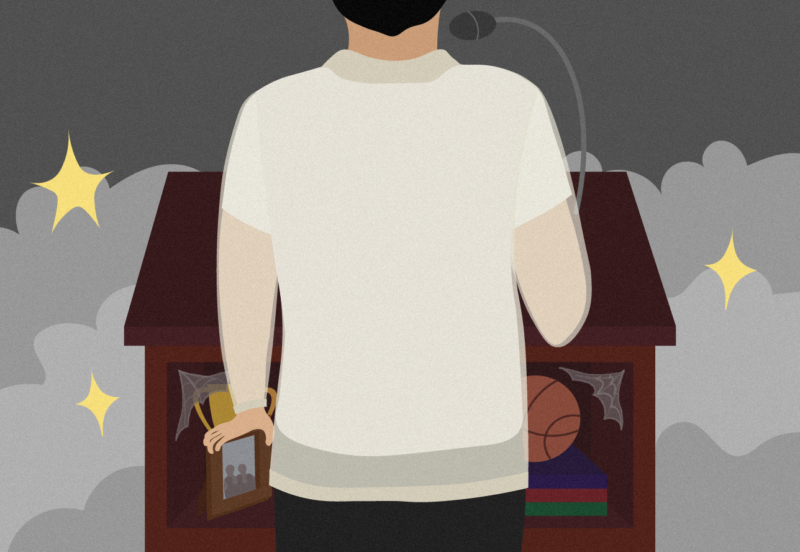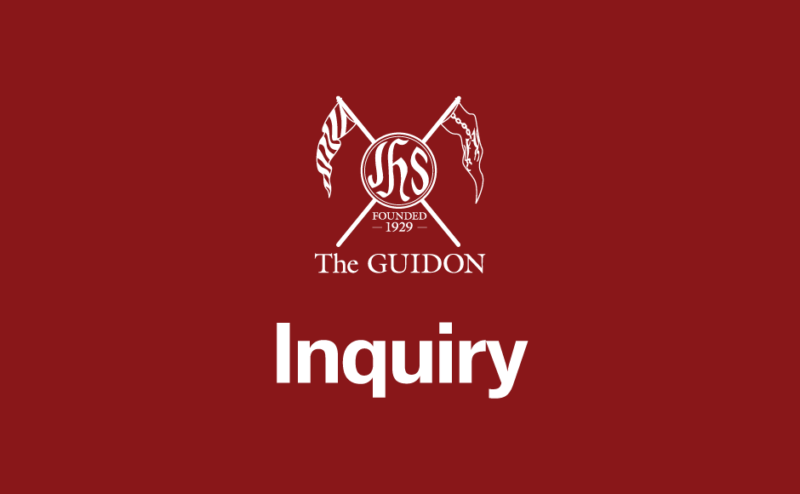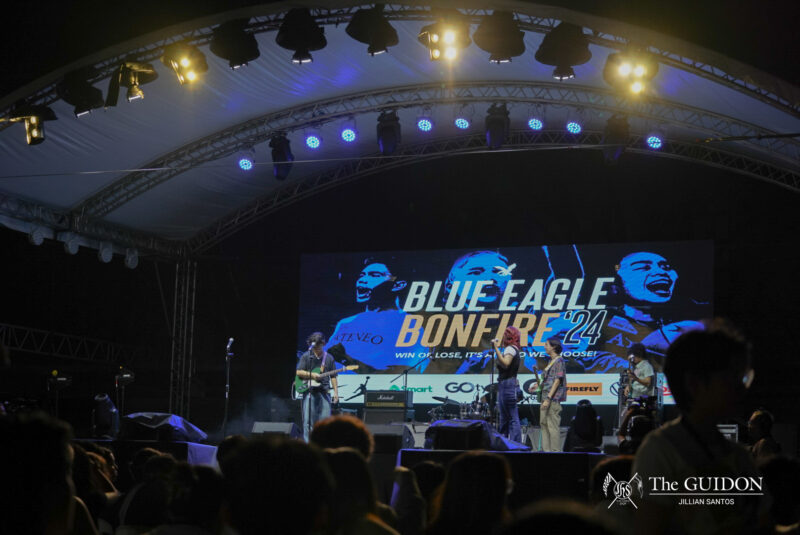It’s that time of year again—when a line outside De La Costa Hall spans the length of the building, as the air outside whirs with the buzzing anticipation of students going through their notes and practicing their speeches. One by one, they will enter consultation rooms, pick out a question, and speak.
No stay in the Ateneo is complete without the dreaded oral exam. After all, it is a key component in the curricula of core subjects such as theology and philosophy. Taking an oral exam provides an experience unfound in any form of pen-and-paper test; its dynamics are vastly different, training the ability to not only answer questions but also to respond articulately given a short amount of time.
The particular uniqueness and difficulty of these exams often bring to mind the question: Why the ubiquity of oral exams in the Ateneo?
Examining oral exams
In a 2005 study conducted to examine oral assessment in the undergraduate university setting, Ulrike Heiter, PhD,asked a similar question. He proposed several reasons for the disinclination towards giving and taking oral exams, the first being that the exams are time-consuming and difficult to conduct. Written exams hold the merit of being easy to give out and check while oral exams can easily take a week or more depending on the number of students who have to take it.
The issue of grading ties in with the second point in that oral exams are deceptively complex. The flexible, open nature of oral exams is just as much a benefit as it is a flaw, as fairness and objectivity are more difficult to uphold. To this, Heiter insists that special precautions have to be taken in the creation of both the questions and the rubric for grading in order to avoid further complications.
However, these do not discount the fact that oral exams also excel in certain aspects compared to their written counterparts. One particularly important quality is the ample amount of student-teacher feedback present in oral exams. “There is…more space for engagement between the student and the teacher; the instructor now has the opportunity to probe more carefully into what the student presents and to push what the student knows about the topic,” says Len Garces of the Mathematics Department.
Other qualities of note include the high levels of adaptation and application needed. Oral exams push students to be more involved with their studying as the spontaneity and time pressure require quick thinking, reacting, and decision-making, all of which will not be possible without having an extensive understanding of the topics involved. Garces explains further that oral examinations also prepares students for the workplace, particularly in being able to proficiently “talk” about their work, which is a direct result of the confidence, orderliness, and understanding fostered by the exams.
Old-school
School of Humanities Dean Benilda S. Santos, PhD extends these sentiments, citing tradition as one of the main reasons for why the mode of assessment is still so prominent in the Ateneo. Oral examinations are an ancient practice, dating back to when learning institutions were not yet present and the main mode of transmitting knowledge was through face-to-face interactions between teachers and students.
Santos says that “in the past, when implements of writing…were not abounding…the face was the most important record of everything.” Reading a face reveals not only confidence or understanding, but also one’s character and soul, Santos asserts. This interaction can garner valuable insights and provide “an experience that no reading of any kind of enlightening title can give you.”
The notion of enlightenment that oral examinations bring to the table plays a big part in why they have stuck around, particularly in the philosophy and theology departments. It fits their very nature. Santos goes back to the idea of the face. “I thought about Theology and I guess in Theology…that would be looking or reading a believing face, a face of belief. philosophy, it must have been the thinking face,” she says. She notes that the face is where one can perhaps see depth in the reaction of a student – it reveals their character or provides insight into their soul. It brings forth the human aspect of the student. She emphasizes that “it’s the persuasion of the human presence which is the very heart of theology and philosophy.”
Aside from being a means for assessing student performance and knowledge , oral exams are also meant as an opportunity for learning beyond the typical classroom experience.
Santos expresses that there is much value to be had in the more intimate setting, particularly in terms of the opportunity for an exchange of knowledge between teacher and student, perhaps even more so than in the classroom. This harks back to the time of the ancients, where learning was accomplished primarily through discourse between a master and a student.
“And that is why I feel this is the reason for the oral exam, so that you are able to be on an equal footing. , the teacher is no longer on a platform, a little raised pedestal, a little more raised than the rest, where you don’t belong, where you’re just another face among 30-40 other faces, but you’re sitting down in a cubicle, a nice cool room, a very simple, bare room, and you’re talking to each other. Can you imagine that? Wonderful,” she says.
Beyond de la Costa
It is evident that within the School of Humanities there is a common acceptance of the value of oral examinations as a testing method for the students of the Ateneo. As such, oral examinations and their occurrence have become a calling card for the School of Humanities. However, the appeal and appreciation of oral examinations is something found not just within the halls of De La Costa Hall.
Though they may be an uncommon occurrence, it is not unheard of for courses in the other Loyola Schools to have had oral exams at one point. The benefits of oral examinations that the School of Humanities exhorts are apparently not lost on the other schools.
In degree programs such as BS Math and BSM Applied Mathematics Major in Mathematical Finance of the School of Science of Engineering, it is the kind of thinking encouraged by oral exams that makes them a viable way of testing.
“It is more difficult than the usualexam because the student has to make sure that the discussion of his or her thought process is clear to the listener, while maintaining the correctness of his or her exposition. The oral exam also aims to see how well the students respond to questions that may result from his or her discussion,” Garces explains.
Flordeliza Francisco, PhD stresses further that oral exams allow math educators like her to check a student’s basic understanding of concepts that results-oriented written tests may not fully gauge. “Sometimes the students don’t do well in the written exams and I wonder if they have learned anything. The oral exam is a good way of finding out,” she says.
“In a written exam, if the student does not answer a question, there’s nothing more I can get from the paper. In an oral exam, if the student fails to answer a question, I can ask another question or a leading question to find out how much the student has learned,” she adds.
As Carmel Abao of the Political Science notes, the use of oral exams in Political Science, especially Political Theory, is need for deeper discernment before arriving at an answer. “Theory has to be explained and cannot be reduced to items or choices,” she explains.
It is apparent that the flexibility of oral exams makes it popular in the humanities and other schools, as it is a medium that allows examiners to test students in using different approaches to analyze and solve problems. Oral exams then become applicable to many topics that would otherwise be harder to analyze and answer using traditional written tests.
Untapped potential
Yet for all the benefits oral examinations may have in various fields, they still suffer the same problems regardless of who is performing oral exams. Furthermore, outside of the School of Humanities, there are only a handful of professors who use oral exams as a regular assessment tool because of the logistical considerations that go into administering these kinds of exams. As Francisco notes, only a few members of the Department of Mathematics and some instructors in SCI 10 (Science and Society) bother to have oral exams today, and this will likely be the case for many more years to come.
However, this is not necessarily disadvantageous. There is a lot of room for flexibility in designing course syllabi and this gives professors the agency to include non-conventional types of assessment if needed. “In SCI 10, for example, there is the need to assess whether the student understands particular societal issues through the lens of science; I think an oral exam is appropriate to check that,” Garces explains. This comes in contrast with tests in the John Gokongwei School of Management, where the emphasis on case discussions makes discussion papers the more appropriate medium for assessment. At the end of the day, he says that “as long as the assessment tool is consistent with the course learning objectives, then it is most likely a beneficial step to make.”
For as long as the Ateneo continues to strive for holistic education, the oral tradition will live on. Oral exams have long distinguished the Atenean from other graduates with the verbal prowess needed in effective communication and its continuing integration into non-humanities subjects provides avenues for testing aspects that are otherwise untouched by traditional examinations.
These ideas spark several questions: How can the exams be refined and improved further? How it can be integrated into other classes? What are other ways by which these exams can be conducted? Most traditional exams would ask for specific answers, but with oral exams, the possibilities are limitless.







